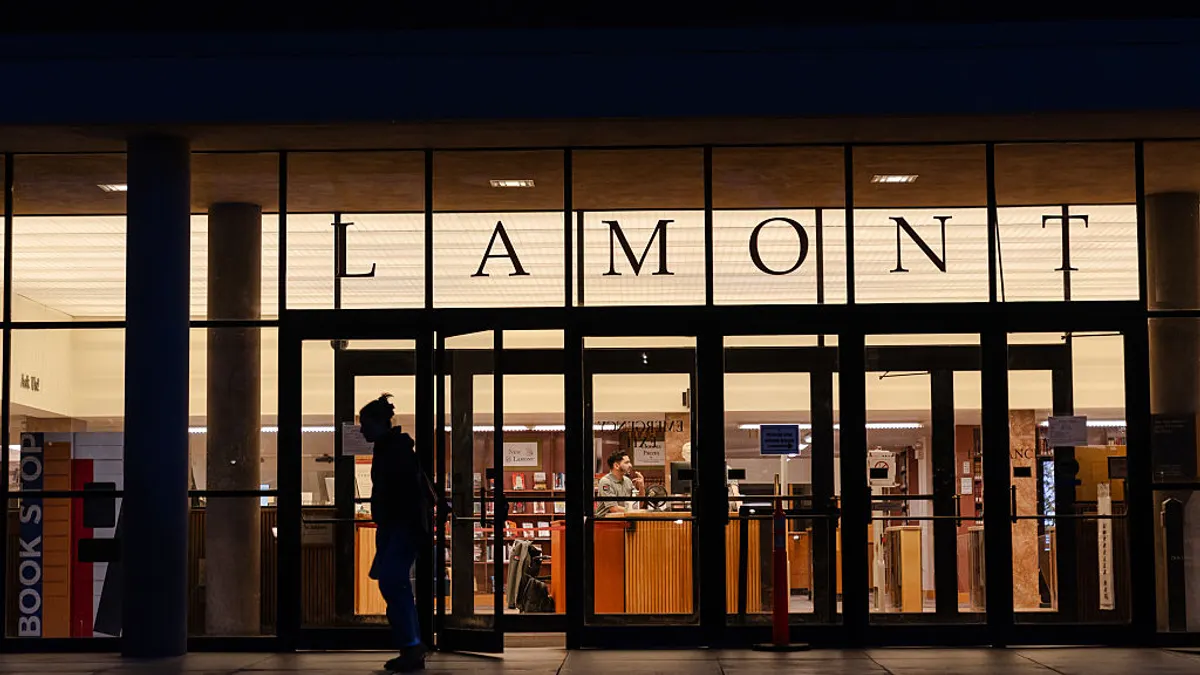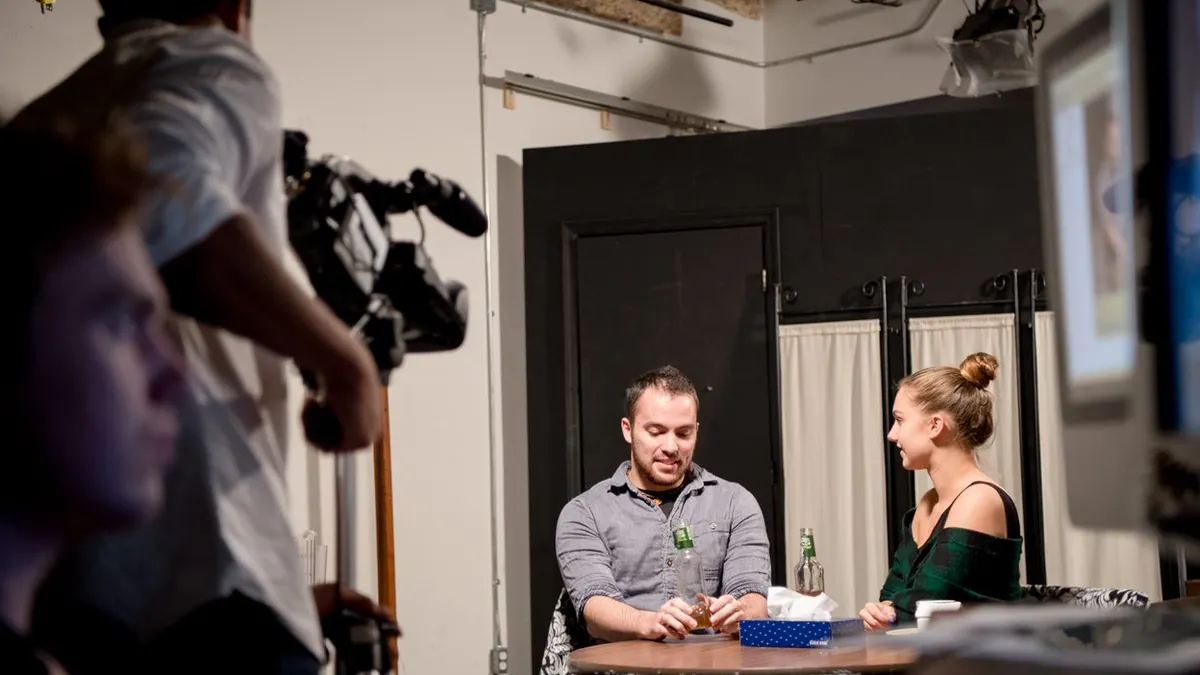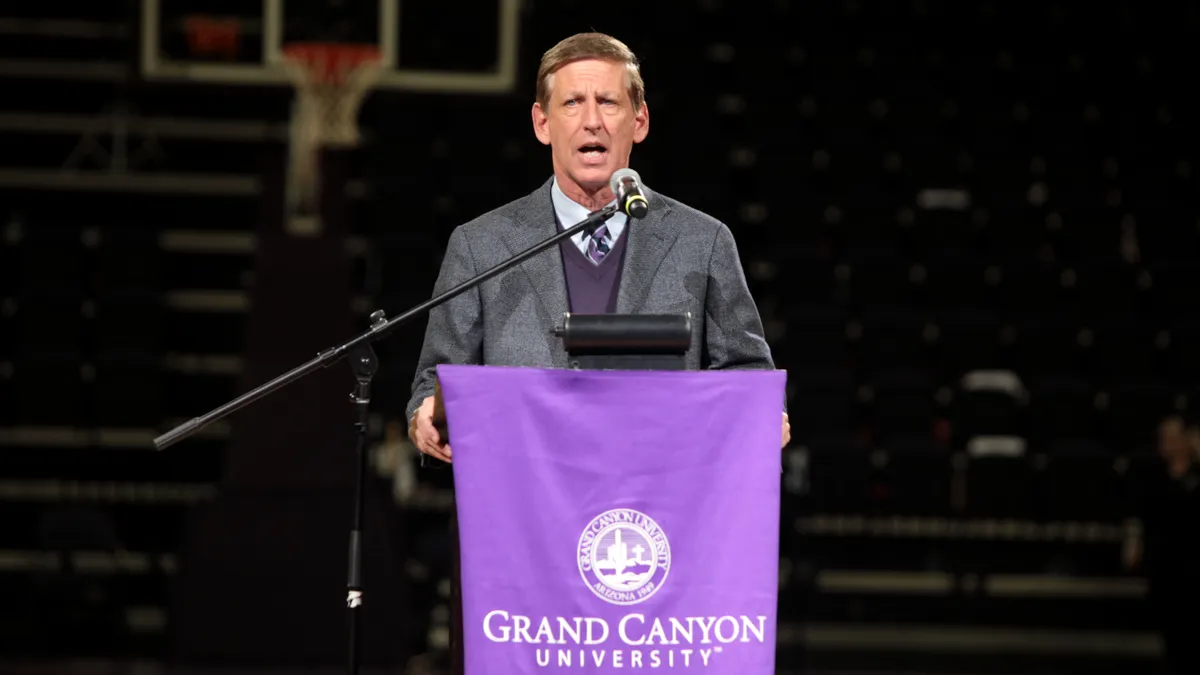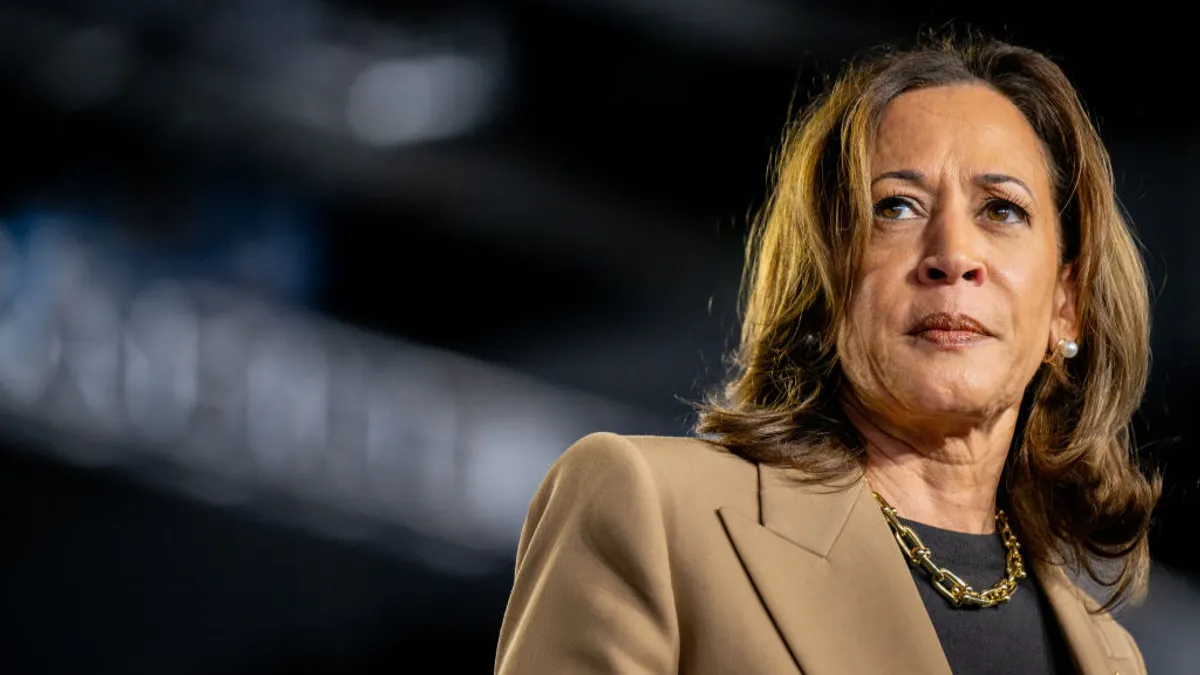UPDATE: March 8, 2019: The receiver managing the assets of Dream Center Education Holdings (DCEH), Mark Dottore, said in court papers Thursday that the organization will no longer have students or directly receive Title IV funding, which would remove it from heightened cash management status. In the same filings, Dottore said he has lined up buyers and transfer partners for many of the organization's remaining colleges following Argosy University's loss of Title IV eligibility last week.
Dottore indicated the founder of Argosy's Hawaii campus is interested in buying it and is also a "possible acquisition partner" for the Phoenix campus. Meanwhile, South University, which DCEH spun off to another nonprofit in January, has agreed to a transfer agreement for Argosy students for online classes and at two locations, and another partner will teach out Tampa, Florida, students. Finally, Dottore said he has a signed offer for the Art Institute of Las Vegas from a group called Save Las Vegas, and there is an offer "in final form awaiting execution" for the Pittsburgh Art Institute. The acquisitions and other arrangements are pending court approval.
Dottore did not list a buyer for the Seattle Art Institute, which is set to close Friday if no deal for acquisition or teach-out emerges. He said previously he was in talks with possible buyers for the campus.
In the filings, Dottore said Argosy will leave behind "substantial unpaid liabilities" and without access to Title IV funding, DCEH "is insolvent."
With its parent organization on the brink of collapse, the Art Institute of Seattle is preparing to close on Friday unless it can immediately find a buyer or teach-out partner.
AI Seattle Campus Leader Lindsey Morgan told staff on Wednesday that the only way the campus could continue operating past this week would be if an acquirer came in and met state, federal and accreditor requirements, according to an email obtained by Education Dive. The college's operator, Dream Center Education Holdings, did not respond to a request for comment.
Aside from the possibility of an acquisition or teach-out arrangement that would bring a partner in to operate the campus, AI Seattle will close, Morgan said. The college plans to hold informational events for students this week.
The looming closure comes as DCEH faces a potentially catastrophic funding crunch. Its court-appointed receiver, Mark Dottore, said in court papers Wednesday that the Education Department's decision last week to cut off Title IV funding to Argosy University, also owned by DCEH, "left the Receiver with over 10,000 students in the middle of their studies and virtually no money." He added, "Without these critical funds, Argosy is unable to continue educating students and the university is failing."
Dottore said he has "worked around the clock" to find buyers for Argosy as well as DCEH's remaining Art Institute campuses not in teach-out mode, which include Seattle, Las Vegas and the flagship campus in Pittsburgh. Dottore asked the court yesterday for emergency authorization to sell, transition or close DCEH's remaining Argosy and Art Institute campuses.
Student stipend mystery
Days after the Ed Department pulled student aid funding to Argosy University, confusion over what happened to $13 million in unpaid federal student aid stipends has only deepened.
Dottore alleged in court papers this week that Argosy and DCEH altered requests for Title IV payments from the department to inaccurately show the stipends had been paid when they weren't.
The missing refunds, which left potentially thousands of students without money they rely on to pay for books, housing and other major non-tuition expenses, has put enormous pressure on DCEH, its remaining colleges and the man overseeing all of it.
Title IV requests to the Ed Department were made while Argosy was on the Heightened Cash Monitoring 1 system and was required to pay the student stipends before requesting the funds, according to Dottore. Once the department released the money, "Argosy and DCEH voided their bookkeeping entries that showed the student had been paid" and then used the money to pay operating expenses rather than the stipends, Dottore said.
In the filing, Dottore said he "entered into earnest discussions" with the department in an effort to get the bottom of the missing student stipends. On Feb. 7, he sent a letter to Diane Auer Jones, an official at the Ed Department, detailing DCEH's "dire" cash shortage.
That process ended badly for DCEH, when last week the department blocked Agrosy from drawing on Title IV aid by denying a pending application to convert to a nonprofit. In doing so, the department placed the responsibility over the unpaid stipends squarely with the receiver, noting in a letter to Dottore that he knew or should have known of requirements to release the stipends to students and the failure to do so was a "severe breach" of Argosy's fiduciary standards.
'Vague' accounts
Dottore has made numerous court statements since writing Jones, and he has also sued two entities involved in the deal to spin off eight Art Institutes and most of the South University system.
In the lawsuit, Dottore accused a for-profit educational services company, Studio Enterprise Manager, of stripping DCEH's most valuable assets, charging fees for services it didn't provide and failing to pay money it owed to DCEH for the use of certain organizational infrastructure and services.
In new court filings, attorneys raised questions on behalf of students who filed a class action lawsuit against DCEH last year over misrepresentations of Art Institutes' accreditation. In this case, they questioned Dottore's various statements on the missing student funds.
"As this story has unfolded, Mr. Dottore has provided a series of vague and often contradictory accounts of where the money went, including, in one court filing, claiming that the money was 'not missing,'" wrote the attorneys, who include lawyers with the National Student Legal Defense Network.
Regarding Dottore's most recent report to the court, outlining the issues with Title IV requests, the attorneys wrote that "[n]o information is provided about who at DCEH and Argosy did this, or what 'operating expenses' were paid with the diverted funds." Their filing also raises questions about what information the Ed Department had access to throughout the process.
Alerting students
As the mystery of the missing stipends unfolds, operations at DCEH's remaining colleges are in a precarious position.
In an effort to hold onto DCEH's remaining cash and assets, Dottore said in his report that he has laid off more than 1,100 employees, closed DCEH's Phoenix facility and "cut virtually every other expense." Dottore, against his assurances to the Ed Department, also let go of Argosy's chancellor and cut nearly 100 faculty and staff members, according to the department.
Against that backdrop, and Argosy's lost Title IV access, California's Bureau for Private Postsecondary Education (BPPE) on Tuesday announced it has blocked DCEH's Argosy and Art Institute locations in the state from enrolling new students and collecting tuition and fees, according to an emailed press release.
"This Emergency Decision does not require Argosy to cease operating, but in light of Argosy's financial problems it is the position of BPPE that Argosy is not financially stable enough to enroll new students," BPPE Chief Michael Marion in a statement.
The move came days after the agency urged students to retrieve their academic records from Argosy and Art Institute locations in the state, according to a separate emailed press release.
Ahead of the announced closure of the Seattle Art Institute campus, Washington state, expecting the college to close or be acquired, also reached out to students and is holding events to inform them of their options.
Dottore maintained in his report that he is pursuing possible buyers for some of DCEH's remaining colleges, and the Ed Department's decision on Argosy has "has caused these discussions to accelerate." In all, Dottore said he is in talks with 15 potential acquirers, six for Argosy and nine for other DCEH campuses.
Conflicting interests
By December, DCEH was facing insolvency as its creditor issues mounted following months of financial bleeding. As the organization's chairman recounted later, DCEH, owned by the faith-based Dream Center Foundation, was in trouble almost immediately after it took over the assets of the bankrupt for-profit Education Management Corporation in 2017.
The deal, struck in January, to spin off eight Art Institutes and the remaining South University system was meant to preserve the viability of those campuses and allow DCEH to somehow reorganize and sell off other parts of itself.
Taking over governance of the spinoff institutions was a nonprofit called Education Principle Foundation (EPF), which Dottore sued along with Studio. Some media reports previously connected EPF to Studio's investors, Colbeck Capital. Indeed, EPF was named the Colbeck Foundation until December and some of the investment firm's executives had served on its board. Such a direct link would potentially serve as a conflict of interest between the nonprofit college entities and the owners of a for-profit firm (Studio) providing services for fees.
However, records the Delaware secretary of state's office provided to Education Dive show that since changing its name, EPF has also changed its board makeup. The organization's three current board directors — Robin van Bokhorst (also EPF's current president), Andrew Florin Smith and John D'Agostino — are not listed among Colbeck's team.
Still, Studio was part of the equity agreement for the spinoff schools and designated EPF as the acquirer, according to the equity acquisition agreement.
Dottore, according to a filing by Studio, got involved in the spin-off negotiations in November, complicating the talks by raising the possibility of selling Argosy to Eastern Gateway Community College and putting DCEH into receivership to help with the acquisition and reorganization. Studio also alleged DCEH was supposed to inform it prior to entering receivership but did not.
Now, DCEH's receivership is being challenged, as is Dottore's role as court-appointed receiver. Colleges cannot file for Chapter 11 bankruptcy protection without losing their Title IV eligibility, which has led to some institutions entering receivership. Receivership allows for some protections from creditors and an orderly process for managing and liquidating assets, though it differs legally from bankruptcy.
Some of DCEH's creditors have argued that the organization's receivership was never legally valid. One landlord asked the court to vacate the receivership entirely. The students questioning the missing financial aid stipends have supported the landlord's motion, with their attorneys writing in this week's filing that the court should "either dissolve the receivership or replace the current Receiver — who was handpicked by DCEH — with a genuinely neutral receiver," arguing that Dottore is conflicted given his past work for DCEH in the spin-off deal and reorganization plans.
In a court filing yesterday, Dottore responded to the students, saying they "misunderstand the very nature of receivership" and receivers, who are "appointed to oversee troubled businesses on the verge of (or having already entered) ruin." Dottore added that he "was appointed to oversee a university system on the brink of collapse" and argued that he should remain as receiver and the receivership be allowed to proceed. Also on Wednesday, judges overseeing the receivership ordered Dottore to show cause by Monday as to why the receivership should not be vacated.
Attached to students' filing was a letter from one of Dottore's lawyers to a landlord of DCEH proposing it file a complaint so as to start the receivership process. A complaint had even been drafted for the landlord's ease. The landlord, apparently, did not take up the offer, given that a different creditor ultimately filed the complaint to start receivership, and the landlord has since said in court papers it could be harmed by the process.


















